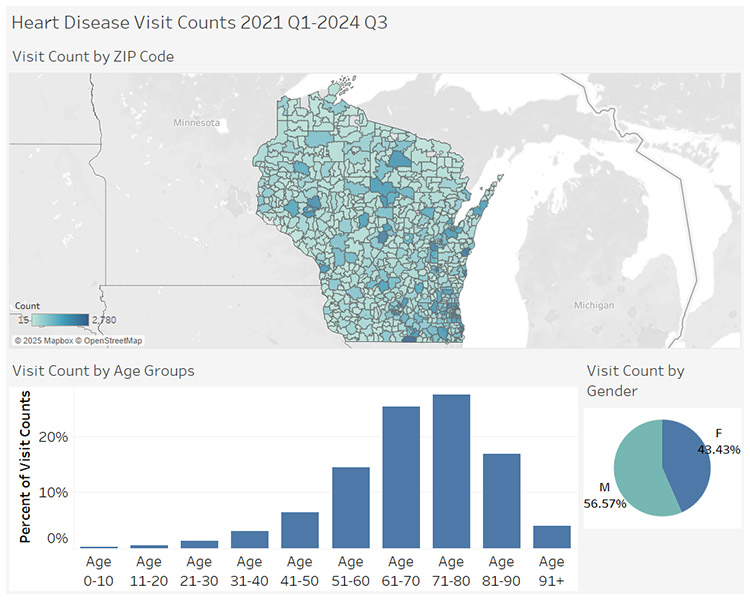Fast Facts: February is American Heart Month
February is known as American Heart Month, bringing awareness to cardiovascular health. The Centers for Disease Control and Prevention (CDC) states that heart disease is the leading cause of death for both men and women. One person dies every thirty-three seconds in the U.S. from cardiovascular disease. There are about 702,000 people in the United States that died from heart disease in 2021-that is 1 in every 5 deaths (CDC, 2022). Coronary artery disease is the most common type of heart disease with about 1 in 20 adults aged 20 and older having it. In 2022, 371,000 people died from coronary artery disease. In the United States, someone has a heart attack about every 40 seconds. Heart disease is the leading cause of death for people of most racial and ethnic groups. These statistics bring to light how serious and prevalent heart disease is in the United States.

WHA Information Center analyzed heart disease claims from all places of service from January 2021 through September 2024. The age group with the highest visit counts is ages 71-80, followed closely by age group 61-70. The average age of a patient visiting with a heart disease related condition is 68 years old, but it is important to note that heart disease can happen at any age. High rates of blood pressure and obesity among younger people put them at higher risk for heart disease earlier in life. Based on WHAIC data, men have a higher visit count for heart disease related visits than women do. Heart disease, however, is the leading cause of death for women in the United States. The past four quarters of data indicate higher visit rates for heart disease in Wisconsin hospitals than seen in the years before.
Here are some risk factors for heart disease from the CDC:
- High blood pressure: High blood pressure is a medical condition where the pressure of the blood in your blood vessels is too high, which then affects your heart and other major organs.
- High Cholesterol: Intaking more cholesterol than the body needs creates extra cholesterol that builds up in the walls of the arteries, including those of the heart. This leads to narrowing of the arteries and can decrease the blood flow to the heart, brain, kidneys, and other parts of the body.
- Smoking: Cigarette smoke damages the heart and blood vessels, nicotine raises blood pressure, and carbon monoxide from smoke reduces the amount of oxygen carried in the blood which all increases the risk of heart disease.
- Obesity: Obesityi is an excess of body fat which can in turn lead to high blood pressure and diabetes.
- Diabetes: Having diabetes can cause a buildup of sugar in the blood which increases the risk of death from heart disease.